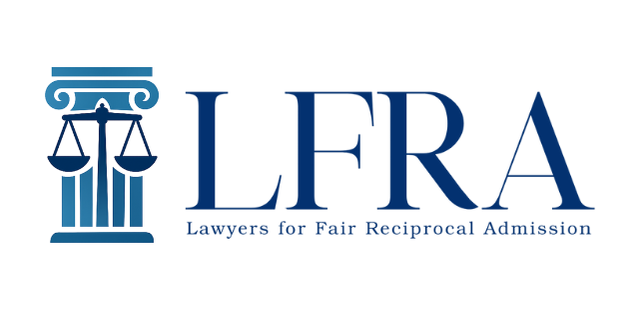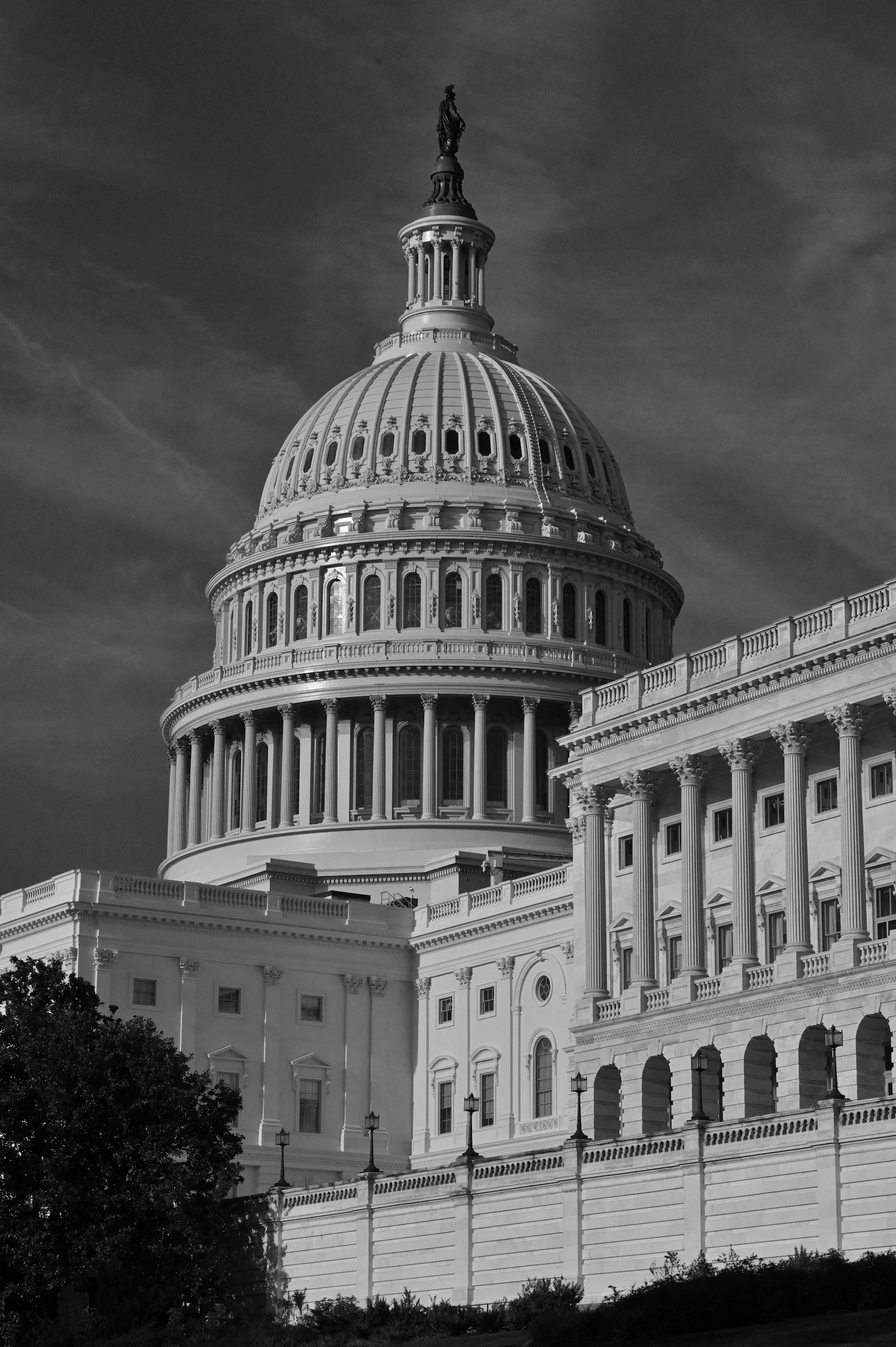
REFORM
RECRIPROCAL
BAR ADMISSIONS
Who are we?
The Lawyers for Fair Reciprocal Admission (LFRA) is a California-based legal advocacy organization dedicated to promoting uniformity in bar admissions across the United States. Our mission is to establish a standardized, equitable framework that allows licensed attorneys to practice law across state lines without unnecessary barriers, fostering fairness, mobility, and access within the legal profession.
Our mission is to:
standardize
bar admissions exams.
remove
unnecessary barriers.
ensure
fairness, mobility, and access
across the legal profession.
Sort of reciprocity: Color
Pure (comity): Green
Tit-for-tat: Yellow
No reciprocity: Red
“A lawyer admitted in one district should be permitted to practice in all district courts”
Richard W. Morris
Declaration of Blue Chip Non-ABA Graduate.
A LAWYERS’S
STORY
Read how a New York lawyer was unable to practice law in California after being relocated for a family emergency.

What’s Unconstitutional About
Reciprocal Admission?
-
Just as no human being has meaningful control over whether he was born in, or whether he was born as a man instead of a woman, neither does a lawyer admitted in a non-reciprocal jurisdiction have meaningful control over how his state structures its bar admission rules. In this respect, a state's unequal treatment of out-of-state lawyers constitutes categorical discrimination based on an immutable characteristic, suggesting a violation of the 14th Amendment's equal protection mandate.
-
Found in the Constitution and the Fourteenth Amendment, this provision ensures that all citizens, regardless of their state, are entitled to the same constitutional rights and privileges. When states reject reciprocal admission from otherwise qualified out-of-state attorneys, they are inadvertently discriminating in licensing exclusively based on state origin.
-
Have you ever wondered why you don’t need to get a new driver’s license every time you move to a different state? That’s because the Full Faith and Credit Clause requires each state to respect the “public acts, records, and judicial proceedings” of every other state. Applied to reciprocal admission of lawyers, this clause should similarly compel states to recognize licenses issued by other states—ensuring that qualified lawyers are not unfairly excluded simply because their licensing state lacks a formal reciprocity agreement.
-
Students for Fair Admission v. Harvard, 600 U.S. 181 (2023), reaffirmed that individuals must be evaluated based on their own merit and experience—not grouped into arbitrary classes. LFRA contends that tit-for-tat admission schemes in federal courts violate this principle by granting automatic admission to all in-state lawyers, regardless of experience, while categorically excluding experienced attorneys from other states. This is not individual assessment; it is class-based exclusion. Just as the Constitution prohibits race-based classifications in education, it likewise forbids bar admission policies that ignore individual qualifications in favor of geographic favoritism.
-
Siegel v. Fitzgerald, 142 S. Ct. 1770 (2022), makes clear that federal access standards must be uniform and cannot arbitrarily burden individuals based on state lines. LFRA argues that tit-for-tat attorney admission rules—whereby federal courts grant full admission to all in-state lawyers while categorically denying the same to equally qualified out-of-state attorneys—violate this constitutional requirement. Just as the Court held Congress could not impose nonuniform fees on similarly situated bankruptcy filers, federal courts cannot rely on a patchwork of state bar rules to justify unequal treatment of experienced attorneys. Such systems undermine the uniformity required by Article I and infringe on First Amendment rights of petition and association.
-
Under Nebraska Press Ass’n v. Stuart and related precedents, prior restraints on First Amendment freedoms are presumptively unconstitutional. LFRA argues that nonuniform local court rules, which require already-licensed attorneys to pass duplicative, state-specific bar exams as a condition for practicing in federal court, function as unlawful prior restraints. These rules impose costly, time-consuming barriers on lawyers’ ability to speak, associate with clients, and petition the government—core First Amendment rights. Much like licensing a printing press, forcing lawyers to gain redundant state approvals to access federal courts suppresses protected speech before it occurs, resulting in irreparable harm.
Explore our
work through
our recent filings
Check Out Our Instagram @thelfraorg
13
Featured Articles
Aug
Requiring Already Licensed Attorneys To Reinvent the Wheel and Take A Second Bar Exam to Obtain General Admission in a Federal District Court or Another State Supreme Court Violates Federal Licensing Standards
Access to justice is a public good. The denial of a public good injures the public. Almost 63,000 lawyers were admitted to the bar of a second state by admission on motion1 or UBE transfer2 between
09
Dec
Delaware Supreme Court Residence & Clerkship For Admission to Delaware District Court Is Unlawful Based on Third Circuit and Supreme Court Precedent.
LAWYERS FOR FAIR RECIPROCAL ADMISSION hereby requests leave of the Court to file a Supplemental Memorandum Opposing Dismissal, which it submits is necessary because















